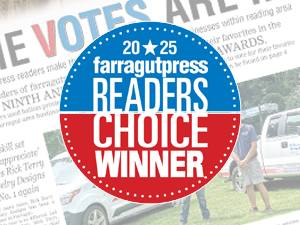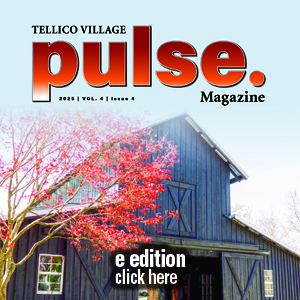Long is ‘au pair’ nanny
Farragut resident Emily Long, the mom of two young boys, said before she got the job, she’d never even heard of an “au pair.”
“First of all, I was saying it wrong,” she said. “Second, I had no idea what they were talking about and I had to research it.”
For the last year, she’s been working for AuPairCare, an organization that brings young women from other countries to work here in the United States. Long works with au pairs in the Farragut/Knoxville area and with the families they serve. The young women apply through an agency, go through an interview process and are matched with families in the U.S.
“The au pair will get a flight date to come to the U.S.,” Long said. “Then they’ll spend three or five days in au pair training in New Jersey. The difference in the three- and five-day program is we have an infant specialized au pair program. Those people stay an extra two days in the academy in that training.”
Long said the six au pairs she’s worked with since she started have been responsible and enthusiastic, fantastic individuals who want to experience American culture. Long said there are other au pair agencies in this area.
“A lot of people aren’t aware of what an au pair is or they think it’s only for the very well-off,” Long said. “The concept’s still fairly new, but there are families in our area who have done this for eight or nine years. I think a lot of families who would use this service don’t even know it exists in this area.”
According to dictionary.com, the term is French for “equal” or “even” and refers to the equal exchange of work for room and board.
Long defines au pairs as young live-in international nannies who provide childcare for up to 45 hours a week or 10 hours a day. She said there are some advantages to au pairs over traditional babysitters or nannies.
“With this, you can get the cultural experience. If you want your children to learn a different language or if you just want to introduce them to a different cultural experience as far as food and activities, you have someone from another country who comes in and shares that with them,” she said. “Ann’s family that she stays with [as an au pair], requested someone from Thailand because they want their children to learn Thai.
“It’s a lot cheaper than an American nanny,” Long added. “The American wants to make $15 to $20 an hour, whereas you’re getting room and board as an au pair, they’re making about $8 an hour. There are a variety of different situations. They’re only guaranteed one weekend off per month and they can have a schedule that varies — maybe they’re getting the kids ready for school in the mornings, and are off in the afternoon.
And like exchange students, she added, they also study.
“There are these programs called traveling study programs where they go to major cities like Chicago or Miami. They can also do the noncredit courses at UT, which several of mine have done,” Long said. “One au pair from the Ukraine wanted to take phlebotomy and Spanish. To be honest, she didn’t finish. She got married to someone she met here from Cleveland, Tennessee, and lives in Cleveland.”
It’s much like a student exchange program, except that instead of going to school for 45 hours a week, they work for 45 hours a week. Each au pair has to achieve certain educational requirements. It’s either 60 noncredit hours or 12 credit hours.
Phumie Cele has been teaching the Josh and Jessica Miller’s four children, aged 2 to 13, for nearly a year. She’s been working with them on the word “road,” and it’s like pulling teeth to get them to say it.
“I’m teaching them Zulu,” she laughs in her British accent. “They can say ‘yes’ [yebo], but ‘no’ is hard – it has clicks. My language has a lot of clicks. They’ve been trying to learn the word ‘road’ all year, but it has three clicks.”
Cele hasn’t had much trouble understanding people here, she said. “In South Africa we don’t put emphasis on our R’s. In order for people to understand what I say, I have to put an emphasis on my R’s and speak really clear.
“I hadn’t been to the U.S. before I came,” she added. “I just did a few years of college and I took a gap year. I’m majoring in pyschology and sociology. It’s been a really nice experience being here especially with the culture. It does seem a little similar to South Africa because it’s diverse as well.”
In the middle of June, Long took the au pairs kayaking at The Cove and Phumie’s host family took her tubing in the Smokies.
“I was screaming the whole time,” she said. “Everybody was laughing at me. I really enjoyed it, but I was really nervous.”
When Cele leaves at the end of June, her replacement from Brazil will arrive in July.
According to aupaircare.com, since 1989 the company has matched more than 60,000 au pairs from all over the world with loving host families here in America.
“AuPairCare was one of the first U.S. au pair agencies in existence, is the first agency to provide parents with a program that focused on the needs of infant childcare and has consistently been rated A-plus by the Better Business Bureau,” the site stated. “We’re proud of our many accolades but have not forgotten the spirit of our business founders — providing unique personal connections to increase cultural understanding.”


